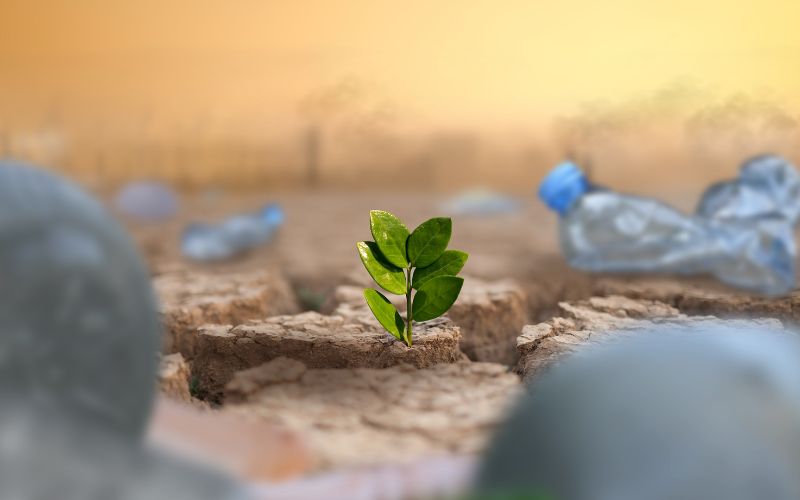Plastics, ubiquitous in modern society, are not only a significant environmental concern but also play a role in contributing to global climate change. Understanding the intricate connection between plastics and climate change is essential for developing effective strategies to mitigate their environmental impacts and promote sustainability.
Plastic Production and Greenhouse Gas Emissions
- Fossil Fuel Dependency: Plastics are primarily derived from fossil fuels, predominantly crude oil and natural gas. The extraction, refining, and processing of these raw materials for plastic production contribute to greenhouse gas (GHG) emissions, including carbon dioxide (CO2) and methane (CH4).
- Energy Intensity: The manufacturing process of plastics is energy-intensive, requiring substantial amounts of electricity and heat. The combustion of fossil fuels to power production facilities and transport raw materials further increases carbon emissions.
End-of-Life Management and Environmental Impact
- Persistence in the Environment: Most plastics are non-biodegradable and persist in the environment for hundreds to thousands of years, contributing to long-term carbon storage and altering natural carbon cycles.
- Incineration and Waste Management: Improper disposal of plastics, including incineration, releases GHGs such as CO2 and toxic pollutants into the atmosphere, exacerbating air quality issues and climate impacts.
Plastic Waste and Oceanic Carbon Sink
- Oceanic Carbon Sequestration: Plastics in the ocean may act as carriers for organic carbon, altering marine ecosystems’ carbon sequestration capacity. This affects the ocean’s role as a carbon sink and disrupts global carbon balance.
- Microplastics and Climate Feedbacks: Microplastics, through their interactions with marine organisms and ecosystems, may influence carbon cycling processes, potentially affecting climate feedback loops and ecosystem resilience.
Addressing the Plastic-Climate Nexus
- Circular Economy Approach: Transitioning to a circular economy model for plastics promotes recycling, reuse, and reduction of virgin plastic production. This reduces energy consumption and GHG emissions associated with plastic manufacturing.
- Alternative Materials and Innovation: Investing in research and development of sustainable alternatives to plastics, such as bio-based polymers and biodegradable materials, can reduce dependence on fossil fuels and mitigate climate impacts.
- Policy and Regulation: Implementing policies that incentivize sustainable plastic production and consumption practices, including extended producer responsibility (EPR) schemes and carbon pricing mechanisms, can drive systemic change.
Conclusion: Towards Sustainable Solutions
Plastics and climate change are interconnected challenges that require integrated approaches and global cooperation to address effectively. By reducing plastic consumption, improving waste management practices, and promoting innovation in materials science and policy frameworks, we can mitigate the environmental impacts of plastics and contribute to climate resilience. Embracing sustainable practices across industries and communities is crucial for safeguarding the planet’s health and ensuring a sustainable future for generations to come.


